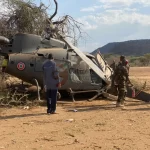Water reserves within Manitoba have transitioned through the worst tribulations in Canada: 6 percent of all homesteads within the province do not have any water reserves. There has been so much attention in recent times for the Canadian media together with a Liberal debate within the house of commons which led the Minister in charge of Aboriginal affairs to state that five point five million would be spend by the government to aid better infrastructure within the 4 communities that lie within Lake First Nations Island, together with Wasagamack.
It is always esteemed that the moment water comes faster of the land, it goes along it with valuable land nutrients such as nitrogen and phosphorous. The moment water retention on land takes long creating lands that are wet, them a lot of resourceful nutrients shall be lost to the water. This scenario is made worse during floods, and normally with big floods, huge amounts of nitrogen and phosphorous shall be transferred to the Lake Winnipeg. The bigger the nutrients level transferred to the lake, the higher the levels of algal blooms.
The large levels of algal within lake Winnipeg has risen by a range of three hundred and five hundred. Also, upsetting algae form concentration levels have increased within the lake by close to one thousand since the year 1990. Basically the dynamics being witnessed in Lake Winnipeg are as a result of the changes in climate and Hydrology within the area of Manitoba.
Ethics are vital perceptions for governing water. Ethics brings about proper universal water governance understanding and the manner in which it compliments other views in respect to governance such as socio-ecological systems, management and institutional capacity. The ethics that relate to the Manitoba water crisis are first environmental ethics, religious ethics since many people tend to abide by what religious values advocate with regard to the natural world. There is also the role of rituals and traditions that offer fresh avenues of dealing with the crisis of water across the world.
It is known that water covers close to two thirds of the universe, clean water however is scarce. With the fact that many people in the world tend to abide by what their religious beliefs advocate for with regard to the natural world, several rituals and traditions play a big role in coming up with fresh avenues to handle the rising water crisis within the world. As Christians, for instance, water ethics should subject the human being at central concern. Naturally, it follows that, policies regarding water must be sustainable and foster the well being of each individual. For consumers of water surviving in abject poverty lines, it is increasingly becoming a matter of concern and vital for survival, in a wider sense of the issue, the basic human rights to life.
This ethics shall go along way towards solving the current water crisis in Manitoba if everybody abides by religious avocations regarding natural resources the definitely they will respect measures that safeguard provision of clean water. Agencies shall also come up with sustainable water policies to curb the current crisis.
The responsibility of preserving water sources and keeping them clean should be the responsibility of everybody, gone are the days when citizens used to shift blame to the government agencies or specific organizations. The small issues which have often been neglected by almost everybody are the biggest contributors to the water crisis currently being faced in Manitoba. There should also be an anthropocentric perception to ethics relating to water. The center of human life in any circumstance first is with respect to the aspect of water. Despite their anthropocentric, with regard of water as a life essential element, it is obviously leaning towards human beings life good.



